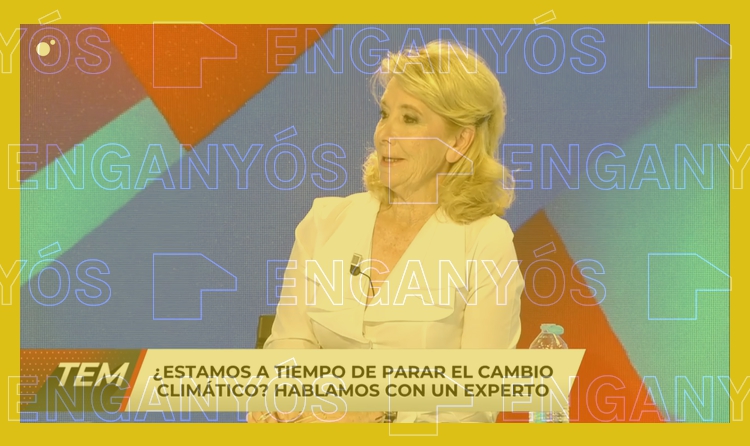Climate predictions have not been wrong, contrary to what Esperanza Aguirre claims

Esperanza Aguirre’s claims about the climate are misleading

The former President of the Community of Madrid, Esperanza Aguirre, who currently contributes to the Cuatro programme “Todo es mentira” (“Everything is a lie”), claimed during the broadcast on 1 July that “catastrophic climate predictions have been wrong every time”, and that “not a single one of them […] that has been made” has come true. Her statement is MISLEADING. The predictions of climate models are not perfect, but even the first ones, published in the 1970s, were capable of foreseeing what was going to happen in the subsequent decades.
Numerous re-evaluations of climate models – including re-evaluations made by the UN Intergovernmental Panel on Climate Change (IPCC), the leading scientific organisation studying climate change – have reached the conclusion that climate models designed to show how greenhouse gas emissions caused by human activity would affect the planet were correct in pointing out that temperatures would indeed increase in the decades to follow.
Alarmist climate predictions have been wrong every time. None of them have come true, not a single one of the predictions they made: not for the year 2000 or for 2002 or for 2010. Nothing actually came true.
The predictions Aguirre mentions are the result of a series of analyses known in science as climate models, analyses based on complex physical-mathematical equations which try to simulate the way the climatic system works as a whole, taking different aspects and variables into account. “Climate models make projections based on scenarios about how greenhouse gas emissions can evolve. They never make a single prediction; rather, they consider how the climate can evolve under certain hypothetical circumstances”, Javier Sigró, geographer and researcher at the Centre for Climate Change (C3) of the University Rovira i Virgili (in Tarragona, Spain), explains to Verificat.
Furthermore, climate is dependent on myriad variables and, as the IPCC indicates in this relatively recent report on climate models, taking into account more details of each one in turn increases the chance of error of those climate models. These models are useful because they allow us to depict realistic scenarios which we can use to make decisions and anticipate future events.
“In the ’70s, ’80s and ’90s, if you programmed a climate model with the variable that CO2 was going to increase, the model [already] responded with an increase in temperature, which is more or less what has happened”, Juan Jesús González Alemán, physicist and meteorologist of the Spanish Meteorological Agency (Aemet) and expert in climate modelling, explains to Verificat. He recognises that, while “it is true that there is variability from year to year”, what “we have to keep in mind are the long-term trends”.
And the trend is that these models are getting more and more accurate: “The models are getting better and better with better and better computers to simulate them, so they’ve been improving over time”, adds the physicist.
Models that have been warning us since the ’70s
In an article published in Nature in 1973 – one of the first climate modelling papers –, its author John Sawyer estimated that between 1969 and 2000, the average global temperature would rise to 0.6ºC, and that the atmospheric CO2 would rise by 25%. The warming observed afterwards during this period was between 0.51 and 0.56°C.
It is something also stated by the author of this accessible article in Science magazine, which focuses on a study published in 2019 in Geophysical Research Letters magazine, whose authors arrived at the conclusion that “most of the models [analysed] accurately predicted recent average global land surface temperatures, which have risen approximately 0.9ºC since 1970”.
The models have also been accurate with regard to extreme weather phenomena. “In the early 2000s, people were already saying that [heat waves] were going to be more frequent, intense and longer lasting, and that is what is happening”, González Alemán says.